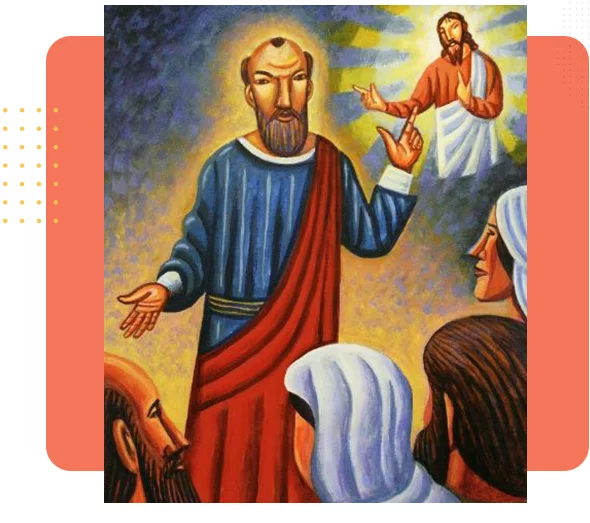Most religions have a founding prophet who acts as the first leader of the faith. For example, in Islam, Allah is said to have sent forth prophets to all parts of the world at different points in history. The Qur’an mentions twenty-five prophets by name but the actual number who received revelations is supposed to be significantly higher.
Commonalities across religious prophets or texts are not just coincidences but rather serve as evidence that all are descended from the same God. The reason we see differences in religions is not because the prophets received different messages from God, but because they each came up with different interpretations based on their different contexts in which they gave birth to a new religion.
One of the main hallmarks of the great prophets was their refusal to claim divine status, believing themselves to be simply the messengers of God. Spiritual teachers like the Buddha, Jesus, and Muhammad attached importance not to themselves but to the teachings, which had been revealed to them by the divine source. It is the source that we were instructed to revere, and not the human vessel through which it revealed its teachings.

Prophets convey God’s message to people, whereas the priests help and guide people to connect with God. Priests are supposed to follow certain ritual cleansings, lead an ascetic life, spend time in the pursuit of knowledge and prayers to be able to serve as a go-between connecting fallible man with the Holy divine. Over the years, however, numerous false priests have emerged claiming to be divine, abusing their power over people, encouraging blind faith and often engaging in extortion of money with false promises of salvation. Because of this, some religious groups have chosen to do away with any kind of formal clergy and intermediary leaders and move back to the source.
Priests can play important roles in our spiritual lives, but it is important to remember that they too are human and their words should not be followed blindly. Before placing our trust, we need to make sure that we are not being misguided by a false priest.
Christianity
“For false Messiahs and false prophets will appear and perform great signs and wonders to deceive, if possible, even the elect.”
—The New Testament (Matthew 24:24), Christian text
Islam
“Muḥammad is not but a messenger. [Other] messengers have passed on before him.”
–The Qur’an (3:144), Islamic scripture
Judaism
“The Lord your God will raise up for you a prophet like me from among you, from your fellow Israelites. You must listen to him.”
—Hebrew Bible (Deuteronomy 18:15), Jewish text
Baha’i
“Fear thou God, but not the priest.”
—Bahá’u’lláh, Baha’i prophet
Buddhism
“The purpose of studying Buddhism is not to study Buddhism, but to study ourselves. It is impossible to study by ourselves without some teaching […] You have a teacher for yourself, not for the teacher.”
—Shunryu Suzuki, Zen Buddhist monk and teacher
Hinduism
“If my spiritual guru and God were both in front of me, I would show my reverence and respect to my guru first. It is only because of the guru’s guidance that I am able to find God.”
—Kabir, Indian mystic and poet


